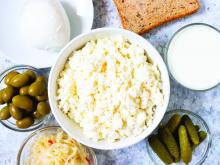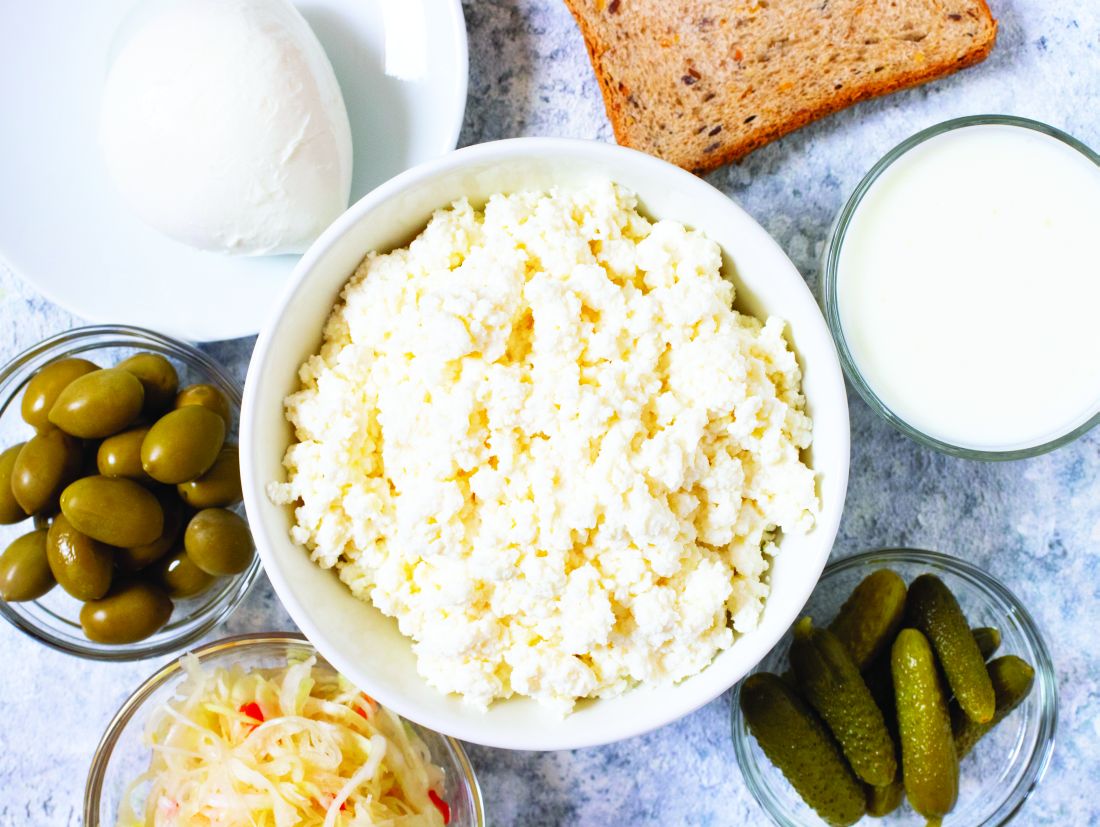User login
Bridgette Wilson, PhD, RD, postdoctoral research associate in nutritional sciences, and Kevin Whelan, PhD, RD, professor of dietetics, King’s College London, England, share talking points to help your patients understand what is currently known about the use of prebiotics for GI disorders.
Explaining prebiotics for GI disorders
Different prebiotic supplements have different effects on gut symptoms. For example, lower doses of noninulin type fructans (e.g., beta-galacto-oligosaccharides [GOS], pectin, partially hydrolyzed guar gum) are likely to be better tolerated in patients with functional gut symptoms, including irritable bowel syndrome (IBS).
Though prebiotic-containing foods are thought to benefit gut health in general, some prebiotics are FODMAPs that have been associated with symptoms in IBS patients. Individual patients on restrictive diets should systematically introduce prebiotic foods to identify the type and quantity they can tolerate.
Prebiotic supplementation of more than 10 g/d may soften stools and increase bowel movements in patients with defecation difficulty or constipation.
Prebiotic supplementation may worsen symptoms in Crohn’s disease but is well tolerated in ulcerative colitis, although there is no effect on disease activity.
These tips are from “The current state of prebiotics,” the third article of a four-part CME series on prebiotics. This activity is supported by an educational grant from GlaxoSmithKline. Part one, “Prebiotics 101,” and part two, “Diet vs. Prebiotics,” are available through AGA University (agau.gastro.org).
AGA also has educational materials for patients on probiotics, which can be accessed at www.gastro.org/probiotics in English and Spanish.
Bridgette Wilson, PhD, RD, postdoctoral research associate in nutritional sciences, and Kevin Whelan, PhD, RD, professor of dietetics, King’s College London, England, share talking points to help your patients understand what is currently known about the use of prebiotics for GI disorders.
Explaining prebiotics for GI disorders
Different prebiotic supplements have different effects on gut symptoms. For example, lower doses of noninulin type fructans (e.g., beta-galacto-oligosaccharides [GOS], pectin, partially hydrolyzed guar gum) are likely to be better tolerated in patients with functional gut symptoms, including irritable bowel syndrome (IBS).
Though prebiotic-containing foods are thought to benefit gut health in general, some prebiotics are FODMAPs that have been associated with symptoms in IBS patients. Individual patients on restrictive diets should systematically introduce prebiotic foods to identify the type and quantity they can tolerate.
Prebiotic supplementation of more than 10 g/d may soften stools and increase bowel movements in patients with defecation difficulty or constipation.
Prebiotic supplementation may worsen symptoms in Crohn’s disease but is well tolerated in ulcerative colitis, although there is no effect on disease activity.
These tips are from “The current state of prebiotics,” the third article of a four-part CME series on prebiotics. This activity is supported by an educational grant from GlaxoSmithKline. Part one, “Prebiotics 101,” and part two, “Diet vs. Prebiotics,” are available through AGA University (agau.gastro.org).
AGA also has educational materials for patients on probiotics, which can be accessed at www.gastro.org/probiotics in English and Spanish.
Bridgette Wilson, PhD, RD, postdoctoral research associate in nutritional sciences, and Kevin Whelan, PhD, RD, professor of dietetics, King’s College London, England, share talking points to help your patients understand what is currently known about the use of prebiotics for GI disorders.
Explaining prebiotics for GI disorders
Different prebiotic supplements have different effects on gut symptoms. For example, lower doses of noninulin type fructans (e.g., beta-galacto-oligosaccharides [GOS], pectin, partially hydrolyzed guar gum) are likely to be better tolerated in patients with functional gut symptoms, including irritable bowel syndrome (IBS).
Though prebiotic-containing foods are thought to benefit gut health in general, some prebiotics are FODMAPs that have been associated with symptoms in IBS patients. Individual patients on restrictive diets should systematically introduce prebiotic foods to identify the type and quantity they can tolerate.
Prebiotic supplementation of more than 10 g/d may soften stools and increase bowel movements in patients with defecation difficulty or constipation.
Prebiotic supplementation may worsen symptoms in Crohn’s disease but is well tolerated in ulcerative colitis, although there is no effect on disease activity.
These tips are from “The current state of prebiotics,” the third article of a four-part CME series on prebiotics. This activity is supported by an educational grant from GlaxoSmithKline. Part one, “Prebiotics 101,” and part two, “Diet vs. Prebiotics,” are available through AGA University (agau.gastro.org).
AGA also has educational materials for patients on probiotics, which can be accessed at www.gastro.org/probiotics in English and Spanish.

